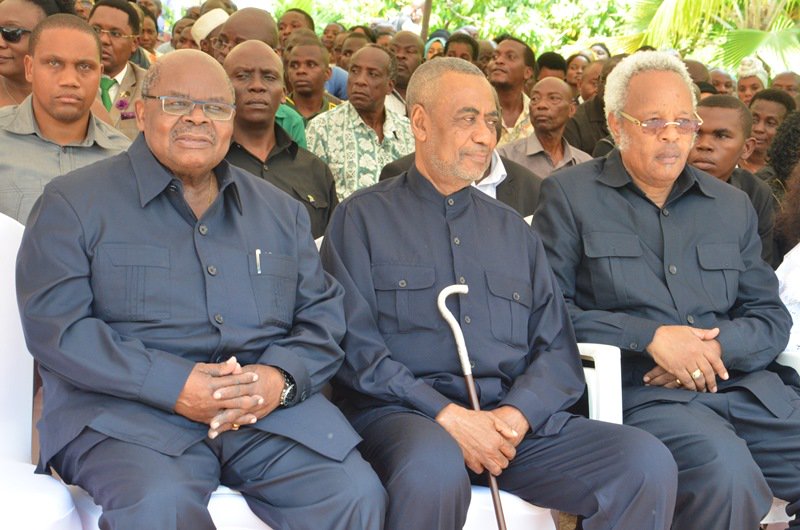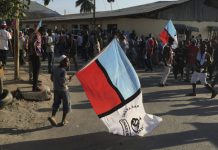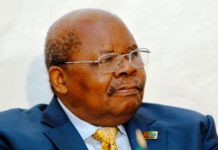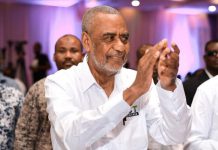Author: LYDIA SHEKIGHEND
AfricaPress-Tanzania: “It is very rare for leaders to admit mistakes they made when they were in power but this has not been so in respect of third phase President Benjamin Mkapa,” said ACT Wazalendo Chairman Seif Sharif Hamad as he mourns the former Tanzanian statesman.
Hamad said yesterday that President Mkapa was earnestly committed to resolve 2000 post election clashes in Zanzibar through peaceful means and regretted what had happened.
Mr Hamad, the then Civic United Front (CUF) Secretary General, said he worked closely with President Mkapa to ensure that they came up with the peace accord that could end such political hostilities in the country.
“President Mkapa regretted what happened in Zanzibar on January 26 and 27, 2001, and therefore we worked closely to make sure that such a situation never recurred in our country… he sometimes invited me for lunch or breakfast to discuss better ways of restoring peace in Isles,” Mr Hamad said.
“I remember the day we signed the peace agreement; President Mkapa said that Tanzania was a country of all Tanzanians, there is no onewho owns the country … I supported him and saw the need of cooperating with him in building our nation and prevent such chaos recurring in future,” he said.
He, further, said that Mkapa had shown a high level of confidence by admitting that what had happened in Zanzibar in January 2001 was unfortunate. Mr Hamad said that it was very rare for such top leaders to regret their mistakes, adding that “leaders like other human beings make mistakes but it needs confidence to admit them.”
He said that, Mr Mkapa expressed his regret over the killings in Zanzibar in his book entitled, ‘My Life, My Purpose’ which was launched late last year. Mkapa said in the book that the chaos would remain a scar in his presidency, despite the fact that he was not present when it occurred.
“I still remember the killings of 21 people in Pemba, Zanzibar, on January 26 and 27, 2001. This incident will remain a scar in my presidency although I was not around when it occurred,” Mkapa wrote in his book.
The clashes erupted in the Isles after the 2000 General Election that brought Zanzibar’s Amani Abeid Karume to power. The chaos intensified shortly after the Zanzibar Electoral Commission (ZEC) announced that there would be a poll rerun in Urban West Region that had 16 constituencies. The then main opposition party Civic United Front (CUF) wanted the polls to be rerun in the entire country. In his speech at the signing of the peace agreement, President Mkapa said:
“This is a day of great pleasure and satisfaction to me personally. From now on I think I will sleep more soundly. For, it is true that the political crisis in Zanzibar has weighed heavily on my shoulders. The deaths that occurred in January 2001 in Unguja and Pemba disturbed and saddened me greatly…. We were used to hearing of such deaths in other countries, not in ours,” He further said “the decision of our fellow citizens to seek refuge outside the country also made me sad, and shamed our nation.
We are used to receiving refugees, not creating refugees…. Our people expected too much from me in bringing this crisis to an end. Political parties, likewise, expected too much from me. High Commissioners and Ambassadors, and their Governments, all the time wanted me to do much more; sometimes without regard to constitutional requirements and the limits of my powers.
“But, more importantly, they forgot that one person couldn’t solve a crisis like this, unless he can make miracles, and I could not make miracles. The only miracle option I had was to revert to African traditions and ways of resolving conflicts, under which even before colonialism, our elders, when confronted by a major crisis, used ‘to sit under a tree’ discuss, listen to each side, weigh each argument, without regard to how long it took to reach an agreement.”
Mr Hamad further said that Tanzania had lost a great leader whose thoughts and contributions were still needed in the country. Mzee Mkapa was among a few Tanzanians who had an opportunity to lead this nation, adding that despite his human weaknesses, he had done a lot for the country.
“Mkapa initiated economic reforms that allowed private sector to contribute in the development of the country … he also fought corruption in the country… he will forever be remembered,” he said.
He further said that President Mkapa was also a custodian of the multiparty system in Tanzania because the constitution was amended during his rule to allow the introduction of the system. “Although sometime he was taking actions which were no favourable to the opposition, he has left us with a good system,” he said.







